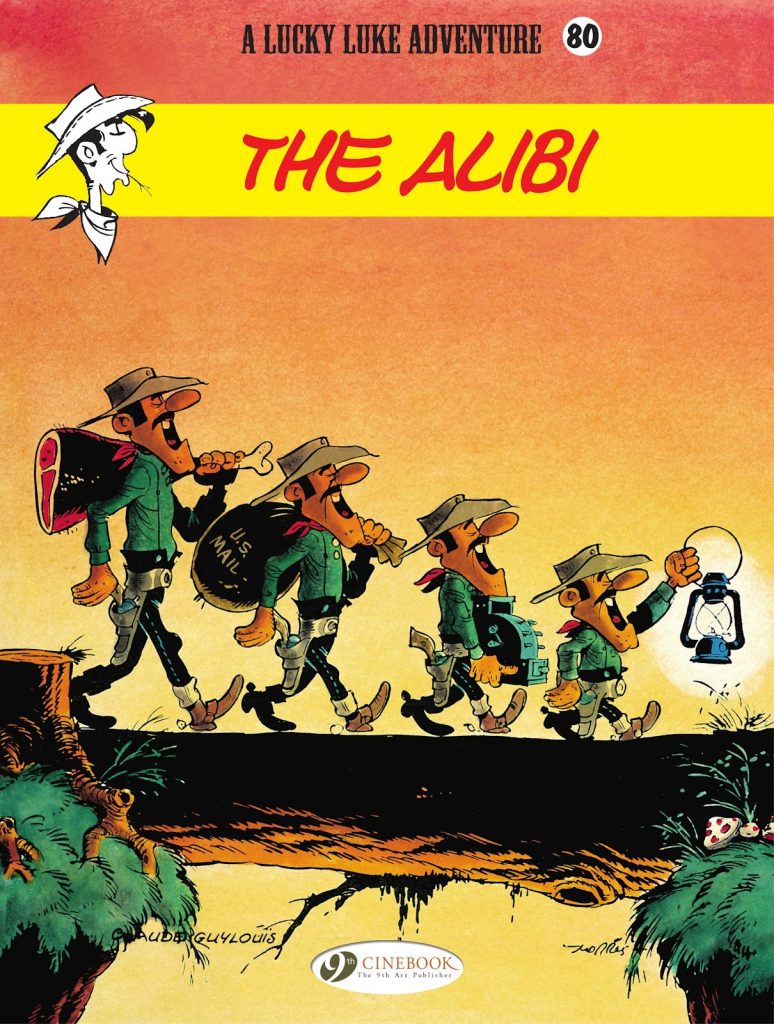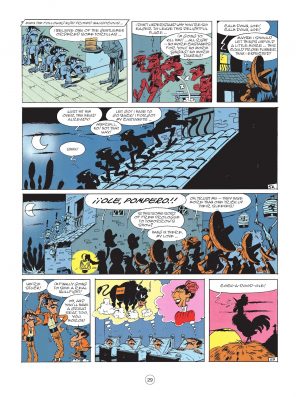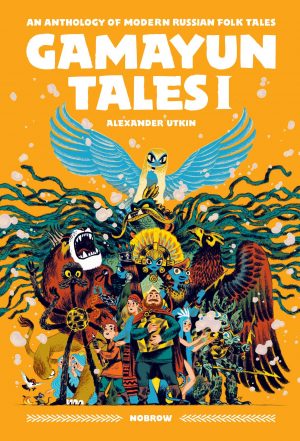Review by Frank Plowright
This is an unusual Lucky Luke outing, starting with its presentation of four short stories rather than one long one, and there’s a very complicated background before even beginning The Alibi, as the writing credit for Claude Guylouis is actually an alias for a composite of three writers. Guy Vidal edited respected French comic magazine Pilote between 1973 and 1981, occasionally dabbling in freelance writing before making it a full time career. Jean-Louis Robert combined a career in education with screenplays adapting children’s stories in erotic form. To complicate matters further, third partner, Claude Klotz is better known under yet another alias as the novelist Patrick Cauvin. This was their second Lucky Luke book, having previously collaborated with Jean Léturgie and Xavier Fauche on The Cursed Ranch, a case of too many cooks producing an average story, while Vidal solo had previously written the slightly better Bride of Lucky Luke.
Thankfully regular artist Morris draws all four stories, as his polished cartooning is their saving grace. Just look at the great silhouette panel and crowded scene in the sample art from a story in which the Daltons rob the wrong people in Mexico and have to follow through by performing as renowned bullfighters. The unusual number of larger panels in this short tells its own story, though, as they’re used to extend it to the necessary page count, and draw attention away from the lack of jokes and how obvious and stilted those supplied are.
The same applies to the writing of the other three stories. They all have a viable premise, but all are laboured. The title story has Luke hired to provide Wild West adventure for a gung-ho heiress without her realising it’s been staged, followed by a slim and weak man tasked with winning a contest to ensure a date. The best story is the last, in which Luke’s horse Jolly Jumper is kidnapped. At least this has a few viable jokes, but in common with the title story, it also features inexcusable racist caricatures in passing.
In terms of the writing this is the most ordinary Lucky Luke book since the earliest days, but the compensation is that because there isn’t such a density of jokes Morris provides more of those fantastic busy larger panels. His polished cartooning raises The Alibi to just about average.





